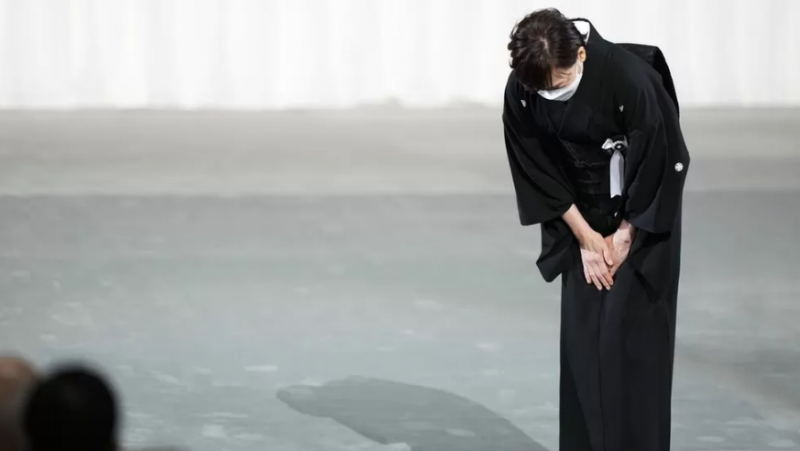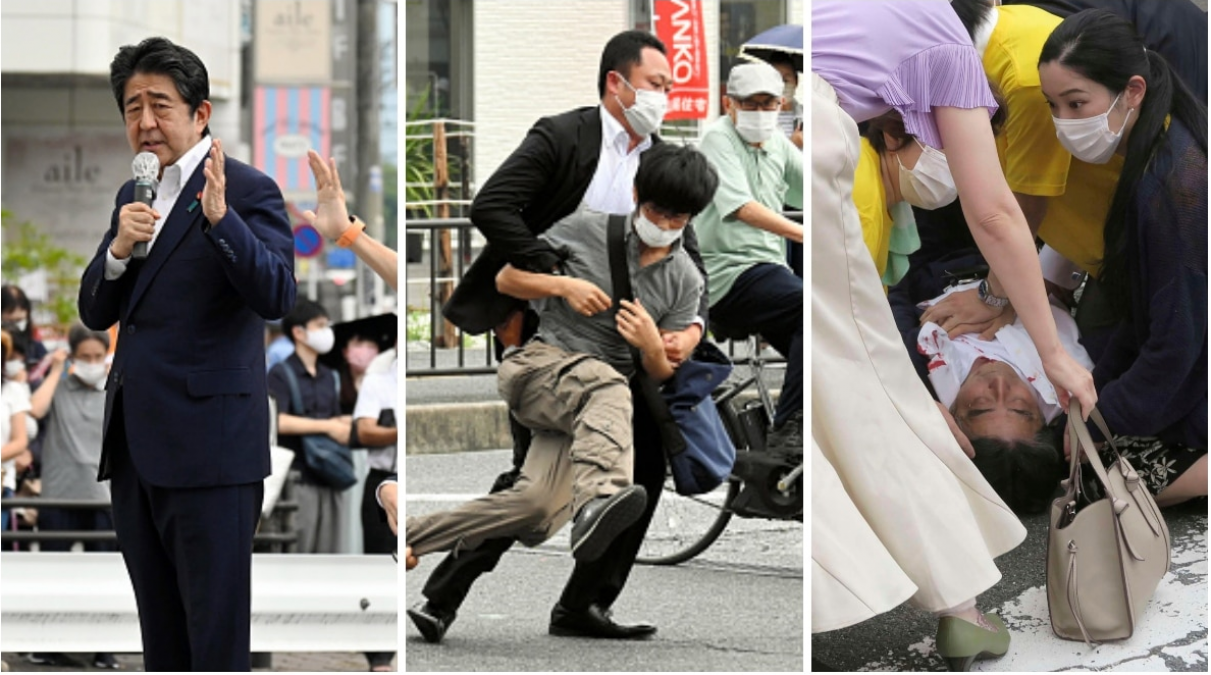
Tokyo: Shinzo Abe's widow Aki walks slowly in a black kimono, carrying her husband's ashes in a silk-covered funeral urn.
He installed it on a large altar decorated with white chrysanthemums. Above it hangs a large picture of Abe, the longest-serving prime minister of Japan. Only once in Japan's post-war history has a politician received a state funeral, and Tuesday's ceremony to honor Abe has sparked widespread outrage.
Thousands of guests attended, including local and global leaders from Japan's closest allies. However, it faced criticism when protesters marched against the decision to hold the funeral. It is a day and an event that has divided Japanese society. It is also a reflection of Abe's complex and often divisive legacy.

Japan will reopen to large-scale tourism in October.
The 67-year-old politician was shot twice with a house gun in July. The killing shook a country that was not accustomed to gun crimes or political violence, showing sympathy for a leader who had never been popular.
“Abe-san, thank you very much,” shouted mourners who gathered to pay tribute in July – the feeling many of his countrymen felt with his death, that he had given Japan a sense of stability and security.
The announcement of a state funeral changed the mood. However, it has progressed despite growing public opposition in Japan, with opinion polls showing that almost 60% of the population opposes it.
Budokan, a line of mourners carrying flowers stretches for more than 3 kilometers outside the Tokyo arena where the funeral was held (1.8 miles). He wore black clothes and took flowers to pay his last respects.
Japan staggered by earthquake, Tsunami alert issued
"I love Abe and everything about him, which is why I'm here," explained one 19-year-old. A woman in mourning said she had gone there to "show her gratitude for his long service as prime minister".
However, thousands more gathered in front of Japan's parliament a short distance away to protest loudly and angrily.
Abe was widely admired outside of Japan, but he was a controversial figure at home. Many protesters outside parliament were outraged by the funeral's $10.7 million (1.6 billion yen; £10 million) price tag. Others simply said that Abe did not deserve the rare honor of a state funeral.
"I am disappointed and angry that we have allowed the government to do whatever it wants without consulting the people," said 25-year-old Iori Fujiwara. "I am here because the younger generation needs to speak more for their future."
"I couldn't stay at home when they spent so much money and invited so many guests while the Japanese people were hit by a typhoon last week," said 25-year-old Ayaka Uehara.
Typhoon Nanmadol forces the evacuation of nearly 9.5 million people from Japan
Many of those protesting the funeral and Abe's political legacy are elderly Japanese. In the war-torn country, the older generation has long favored a "pacifist" constitution that prevented Japan from investing heavily in its military.
Abe, on the other hand, tried to change this by reinterpreting the Constitution instead of a referendum or parliamentary procedure.
This was a controversial and unpopular move, but is now being welcomed by Abe's supporters, many of whom are young Japanese. Unaffected by memories of the war, they are reacting swiftly to China's aggressive claims on Japanese territory. To him, Abe was a remarkable statesman who re-established Japan as a major player on the international stage.
Prime Minister Fumio Kishida and his Liberal Democratic Party made the decision to honor Abe without considering how the rest of the country would react. However, it cannot be denied that Abe was a man admired by allies in Japan.
He advocated stronger ties between "like-minded democracies" such as India and Australia. He was also instrumental in the formation of the Quad, which included the United States, Japan, India and Australia.
Japan Ends Anti-Satellite Weapons Testing Following US
As a result, it should come as no surprise that the US Vice President, as well as current and former Australian prime ministers, traveled to Tokyo to pay tribute to him. Or that India's Prime Minister Narendra Modi traveled to London last week after she went missing at the funeral of Queen Elizabeth II.
They may assume that Abe was ahead of his time in some ways. He was always concerned about the growing Chinese threat, which Japan's allies now share.